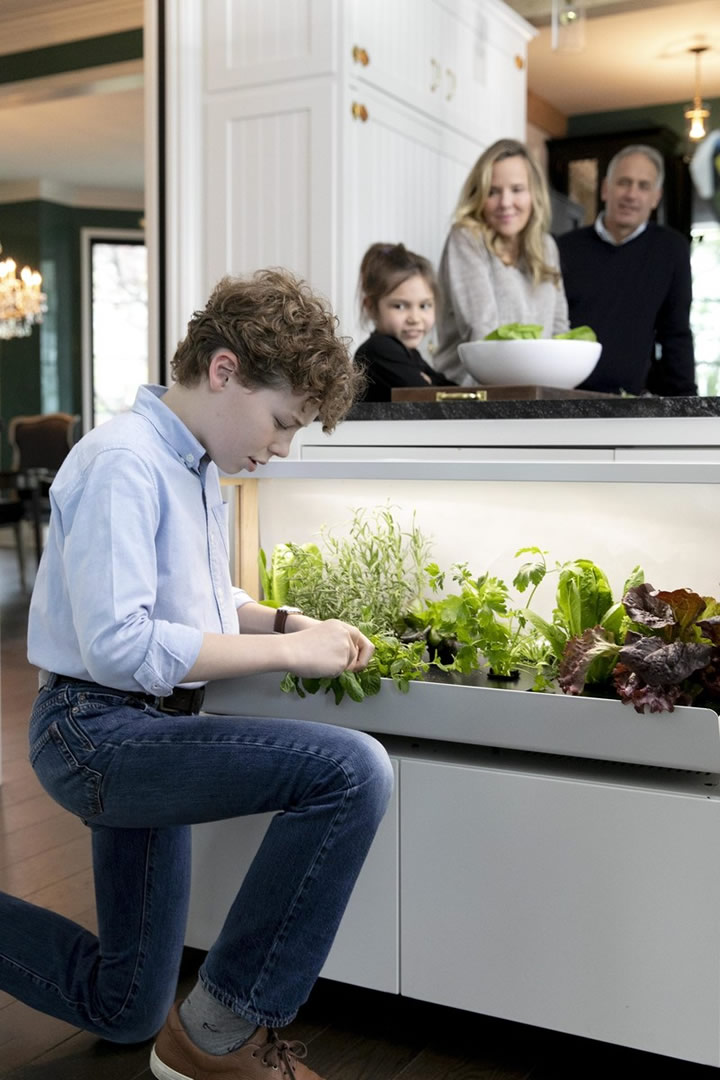Rise Gardens Secures Investment from Amazon Alexa Fund to Help Bring the Best of Indoor Farming to the Consumer Market

Chicago-based Rise Gardens, maker of in-home, smart hydroponic garden systems, today announced it has received an investment from the Amazon Alexa Fund. Building upon a $2.6M seed round that closed in May, the new funding will enable Rise Gardens to expand upon its mission of creating productive, fun, and easy gardening systems for consumers.
Rise Gardens makes a connected, indoor hydroponic gardening system that comes with everything needed to grow a wide variety of vegetables, herbs and micro greens at home, year-round. The system is designed with simplicity in mind, including a mobile app that monitors water levels and plant progress. It also reminds users when and how much to water, fertilize, and care for their plants, while the company's subscription service mails supplies on a regular basis. Its modular design allows for one, two or three levels of growth, accommodating everything from greens and herbs to micro greens, tomatoes and beets. No other system allows for such variety.
"I am thrilled to have Amazon invest in our company, which will help us accelerate our growth and reach more consumers," said Rise Gardens CEO and Founder, Hank Adams. "Collaborating with the Alexa Fund will better enable us to integrate our smart, connected garden with Alexa, making indoor gardening even easier. We are also excited about the opportunity to work with Amazon to evolve and expand how we reach consumers with our device and consumables business concept."
"Rise Gardens sits at the intersection of important trends that are reshaping consumer behavior, including increased interest in healthy food, sustainable agriculture, and making time at home productive," said Paul Bernard, Director of the Alexa Fund. "We are impressed by Rise Gardens' approach to indoor vertical farming for the home and look forward to working with them to make interactions such as checking on harvesting schedules more natural, and streamlining seed orders using Dash Replenishment Service."
Founded in 2019, Rise Gardens announced the close of a $2.6 million seed round of financing in late May led by Silicon Valley venture capital firm True Ventures, with additional funding from several prominent Chicago investors such as Pat Vihtelic (founder, Home Chef), Lee Rosenberg and Michael Alter (WNBA Sky).
Fueled by early concerns about grocery shopping during the pandemic and sustained by rising concerns about sustainability and plant-based diets, the company's sales have risen more than 750 percent since mid-March. Customers have planted 4,000 plants in the last month alone and have harvested 20,000 plants since the beginning of the year, which is over 8,000 pounds of produce grown for more than 750 families across the United States, Canada and Mexico.
About Rise Gardens
Rise Gardens designs state-of-the-art indoor hydroponic vegetable gardens that make it easy for anyone to grow their own food. The system makes a complicated process productive and fun for gardeners constrained by busy schedules, short growing seasons or access to land in urban settings. The modular, WiFi-connected platform allows for expansion and enables growing of a wide variety of greens and vegetables. Founded in 2019 and based in Chicago, Rise Gardens encourages better nutrition and healthy outcomes by helping people grow their own food year-round and by partnering with schools to build nutrition education into the classroom.
Comments (0)
This post does not have any comments. Be the first to leave a comment below.
Featured Product

